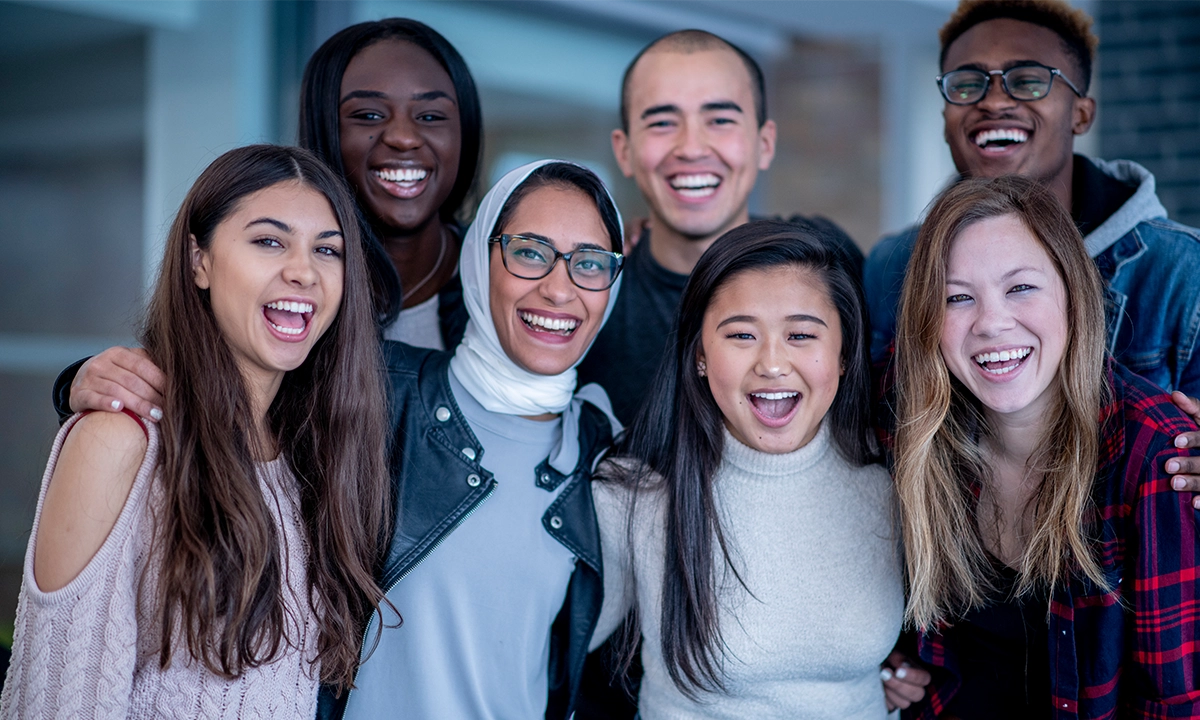IGNITE program

Empowering the next generation of diverse cancer researchers
Building skills is a key part of our Research Strategy. CCS is dedicated to creating a diverse group of cancer researchers and helping the next generation – because today’s students are tomorrow’s leaders.


In 2023, CCS and its partners began the CCS Research Training Awards (RTA) program to help the next generation of cancer researchers grow and innovate. This award supports a diverse group of students at the master’s, doctoral, and post-doctoral levels across the country. This program is offered on a regular basis, with competition details posted here.
CCS works to make Canada’s cancer research system stronger and to create results that help people affected by cancer the most. One goal of the RTA program is to enhance the learning and knowledge exchange experiences of Research Training Award holders (RTAs) through activities like engagement, knowledge translation, mentorship, and exposure to other fields. To achieve this, CCS created a special learning, networking and knowledge-sharing program for our RTAs – known as the CCS IGNITE (Innovation, Growth, Networking and Interdisciplinary Training for Excellence) Program.
CCS IGNITE program
CCS knows that research trainees have unique needs to innovate and succeed. Our first group of trainees said they need:
- Role models to guide them on their learning journey,
- Space to combine research with real-life experiences,
- Interactive and dynamic ways of learning to boost creativity and problem-solving,
- Exposure to and connections with different fields.
With this in mind, the IGNITE Program offers customized learning, networking, and knowledge sharing opportunities to cancer research trainees. We promise to keep asking for feedback so we can expand, improve and evolve our programming as needs change.

Learning
Provide customized monthly learning opportunities that are
- Relevant
- Practical
- Accessible
- Flexible
- Evidence-based

Networking
Bring together trainees, CCS experts, external partners and researchers to
- Create networks with people from different fields
- Appreciate different viewpoints and experiences
- Develop and strengthen inter-organizational, inter-institutional, and inter-program collaborations

Knowledge Exchange
Provide brave and courageous environment to share research
- Supports meaningful, interactive, and respectful discussion and collaboration
- Improve understanding, learning, and support
- Encourage critical thinking, creativity, and problem-solving
Learning and Knowledge Exchange
A virtual series on sharing research in a variety of ways and with a diverse audience. Designed and led by an award-winning science communicator and researcher.
A session on government relations. Registered lobbyists show how research connects to policy and how trainees can use their voices to create change.
What sets IGNITE apart
- Offers personalized and progressive learning opportunities
- Webinars are developed and facilitated by CCS experts and external partners
- Strengthen connections to Canada's cancer research community
- Grant review panel experience

The IGNITE program provides a special chance to watch and/or take part as junior reviewers or scientific officers in grant review panels, which are an important part of the research system. Through these experiences, trainees learn more about research design and grant writing and improve their critical thinking, problem-solving, and cancer research skills.
What did the trainees learn
I learnt the structure and overall process of grant reviews, which was nice to see the diversity and inclusion on voices heard. It was also interesting to see what different aspects were broadly pointed out vs uniquely pointed out by one or few individuals.
This was a great way to learn about the review process and was very informative in seeing perspectives of both scientists from different fields and patient advocates on research proposals. It will not only inform my writing in the future but also the design of my projects going forward.
It was an invaluable experience - I now have a much better understanding of how the review process works. Perhaps my biggest learning was around the practical aspects of how review processes are organized and what the expectations are for reviewers, which will give me a head start should I ever be invited to be a reviewer for a funding organization in the future.
What informs IGNITE
- Results from needs assessments, evaluations and environmental scans
- Research and industry evidence
Meet our researchers
Meet three of our trainees – Erica, Chantel, and Karan and hear what they have to say about their learning/training experience.

What trainees are saying about the IGNITE program

“I am genuinely appreciating the support and opportunities that are being given to us as CCS award holders. The level of encouragement and the array of opportunities provided are amazing and something that I haven't seen from other organizations!”
“I think bringing patients into the research design, implementation, and discussion is truly a game changer for high quality science.”
“I think the level of support offered to trainees is unmatched.”
“I have students within my research lab that are applying for grant funding, and I have had such a great experience with CCS, so I have recommended the RTA's to several of my fellow students.”
“I feel like you get a lot more than just a stipend from this award with actual training that is relevant to our career.”
"This program was so much more than funding (which was also amazing and well-above the other national funding agencies!!). The opportunities to interact with patient partners, scientists, fellow award holders, and CCS staff was transformative to my learning and career. You can tell that the team behind the program is actively learning and implementing new opportunities and strategies to benefit trainees. I have never been a part of a funding stream which showed so much care and support towards their trainees. It made me feel like it was not just my research, but rather my potential as a scientist, that was being recognized and shaped for success.”
“I felt like CCS did truly care about your development as a scientist and provided support to us in various ways. This past year, I have learned so many ways to improve the quality of my research for the community of people affected by cancer, and I highly recommend to anyone applying for training awards to apply to CCS to benefit from these experiences”
